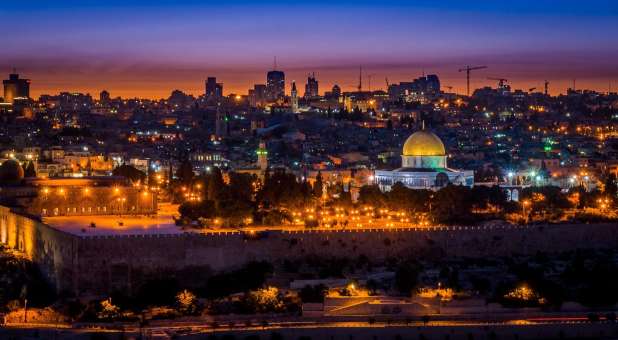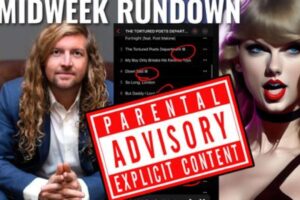Read Time: 4 Minutes 42 Seconds
Recently, I was asked to teach about Hanukkah with a church group in Dallas. I entered the conversation thinking it was really quite straight forward, that most Christians at least in America surrounded by a Judeo-Christian culture know the basics about the holiday.
I began by relating a story about when I did a teaching two years ago with a group of pastors in Africa, who have no interaction with Jews or Jewish culture. One pastor stated excitingly that it seemed like such a great holiday, we should celebrate it more often. I always found that one of the most charming jumping off point for discussion, even with Christians in America who know much more, but typically don’t know as much as one would think.
Hanukkah is the celebration of the rededication of the temple in Jerusalem after its desecration by Greek enemies of Israel. Rather than destroying the temple, again, they desecrated it, which left it unfit for ritual use.
The answer to my African pastor friend as to why we don’t celebrate Hanukkah more often is because Hanukkah is always celebrated on the 25th of the biblical month of Kislev, the day that the temple was rededicated, some 2200 years ago.
The restoration of the temple was made possible by a military victory under the leadership of Judah Maccabi. The name Maccabi has become synonymous with strength and overcoming enemies. It has also been adapted for use in popular culture, among other things the name of a popular musical group and a line of frozen kosher foods in America, as well as the name of one of Israel’s largest health funds.
Most Christians know that Hanukkah is an eight-day holiday commemorating the miracle that during the rededication of the temple enough pure oil was found to light the menorah for one day, but which miraculously lasted for eight days. For eight days we light candles, increasing one candle each night. We eat traditional foods that are fried in oil commemorating the miracle of the oil. Not so healthy, but decadent and tasty.
Hanukkah is also a musical holiday during which it is customary to sing Psalms 113 to 118, called Hallel, thanking God for the miracles He has performed. There are also many songs celebrating the miraculous victory over Israel’s enemies. (Please be in touch for a list of popular recipes, songs and more.)
But even if you were a biblically literate Christian with a deep knowledge of Judaism, how would you know about all of this since it is not featured prominently in the Bible. For answers to this and other questions delving into the how and why of what we do, I hosted Rabbi Avi Baumol on my Inspiration from Zion podcast.
During my teaching in Dallas, I received questions relating to who lights the candles, why and the meaning of that. There were questions relating to the giving of presents as well, with a popular misconception that every family gives every member a present every night. I explained that each family has its tradition.
Also, because Hanukkah is not one of the biblical pilgrimage festivals during which all forms of labor are prohibited as instructed in the Bible, it offers an opportunity for families to have larger social gatherings and employ different traditions. Especially in Israel where it is a public holiday and schools are closed, it’s common for people to travel throughout the country or even overseas during our popular winter vacation.
I also related how in Israel, weeks and sometimes months before Hanukkah, the whole culture begins to focus on the holiday. This includes Hanukkah displays in stores, the increasing number of Hanukkah delicacies being offered for sale, and more. And it’s as mundane as hearing Hanukkah songs as background music in malls and other public places, replete with seasonal sales that also employ the holiday themes.
As much as this was new information for many of the participants, I especially liked engaging them about the place in the New Testament where Hanukkah is mentioned. It’s so subtle that if you don’t know what the first century Jewish culture is about, you wouldn’t necessarily know that John 10:22 is talking about Jesus celebrating Hanukkah in Jerusalem. But if you don’t know what “the Festival of the dedication” is, you would have no idea that Jesus was in Jerusalem to celebrate the holiday.
As an Orthodox Jew with less familiarity with the New Testament, this raised many interesting questions which we discussed, but many of which were still unanswered.
Since Hanukkah is not a pilgrimage holiday like Passover, Shavuot (Pentecost) or Sukkot (Tabernacles), when Jews were expected to worship and bring offerings to the temple, I asked why Jesus was in Jerusalem anyway.
I wanted to understand why this one reference in all of the New Testament was there to begin with. Was it the only time that Jesus came to Jerusalem for the holiday and. if so, why and what was going on? Or is there something that was unique about this one particular visit, and it’s assumed that Jesus spent many winters celebrating Hanukkah in Jerusalem. Unlike today when one can drive between Nazareth and Jerusalem in under three hours, making a pilgrimage by foot or donkey would take days, and days of planning. Forget the time off work.
While the conversation was going on, one person googled and shared some information which affirmed that it was customary for first century Jews to go to the temple. After all, the military conquest and rededication of the temple was relatively modern history to them.
This did not answer my questions, but did affirm something that should not be forgotten, that Jesus was a first century Jew, His life and culture were Jewish and He worshiped in the temple according to Jewish tradition. In a world where replacement theology remains widespread, and some try to erase the centrality of Jerusalem to Jews (and therefore Christians), it’s important that we remember this, and that Christians understand that everything Jesus did was essentially Jewish. {eoa}
Bring Charisma magazine home with a subscription today!
Jonathan Feldstein was born and educated in the U.S. and immigrated to Israel in 2004. Throughout his life and career, he has been blessed by the calling to fellowship with Christian supporters of Israel and shares experiences of living as an Orthodox Jew in Israel. He is president of the Genesis 123 Foundation, which builds bridges between Jews and Christians. Hear and understand more about this subject, including the backstory on the Inspiration from Zion podcast.
See an error in this article?
To contact us or to submit an article























